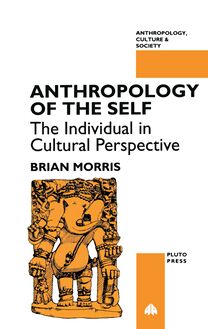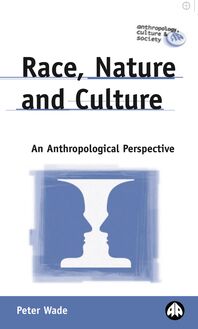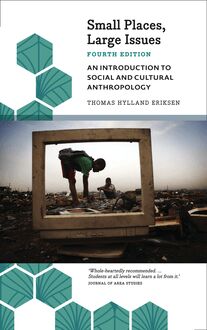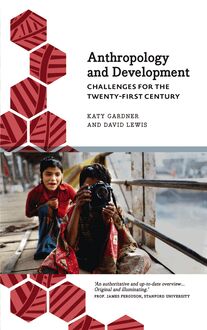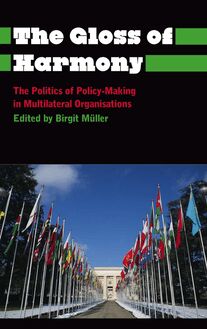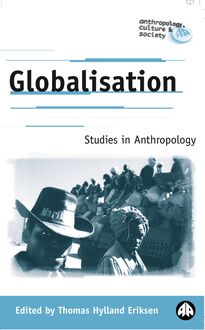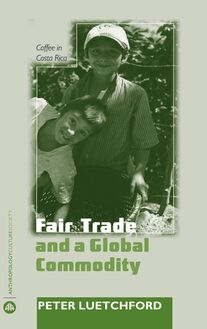-
 Univers
Univers
-
 Ebooks
Ebooks
-
 Livres audio
Livres audio
-
 Presse
Presse
-
 Podcasts
Podcasts
-
 BD
BD
-
 Documents
Documents
-
- Cours
- Révisions
- Ressources pédagogiques
- Sciences de l’éducation
- Manuels scolaires
- Langues
- Travaux de classe
- Annales de BEP
- Etudes supérieures
- Maternelle et primaire
- Fiches de lecture
- Orientation scolaire
- Méthodologie
- Corrigés de devoir
- Annales d’examens et concours
- Annales du bac
- Annales du brevet
- Rapports de stage
La lecture à portée de main
225 pages
English
Découvre YouScribe en t'inscrivant gratuitement
Je m'inscrisDécouvre YouScribe en t'inscrivant gratuitement
Je m'inscris
Obtenez un accès à la bibliothèque pour le consulter en ligne
En savoir plus
En savoir plus
225 pages
English
Obtenez un accès à la bibliothèque pour le consulter en ligne
En savoir plus
En savoir plus

Description
For over ten years, Race and Ethnicity in Latin America has been an essential text for students studying the region. This second edition adds new material and brings the analysis up to date.
Race and ethnic identities are increasingly salient in Latin America. Peter Wade examines changing perspectives on Black and Indian populations in the region, tracing similarities and differences in the way these peoples have been seen by academics and national elites. Race and ethnicity as analytical concepts are re-examined in order to assess their usefulness.
This book should be the first port of call for anthropologists and sociologists studying identity in Latin America.
Preface To Second Edition
Introduction
1. The Meaning Of ‘Race’ And ‘Ethnicity’
2. Black And Indigenous Peoples In Latin America
3. Early Approaches To Blacks And Indigenous People, 1920s-1960s
4. Inequality And Situational Identity: The 1970s
5. Blacks And Indigenous People In The Postmodern Nation-State And Beyond
6. Black And Indigenous Social Movements
7. Studying Race And Ethnicity In A Postmodern And Reflexive World
Notes
Index
Race and ethnic identities are increasingly salient in Latin America. Peter Wade examines changing perspectives on Black and Indian populations in the region, tracing similarities and differences in the way these peoples have been seen by academics and national elites. Race and ethnicity as analytical concepts are re-examined in order to assess their usefulness.
This book should be the first port of call for anthropologists and sociologists studying identity in Latin America.
Preface To Second Edition
Introduction
1. The Meaning Of ‘Race’ And ‘Ethnicity’
2. Black And Indigenous Peoples In Latin America
3. Early Approaches To Blacks And Indigenous People, 1920s-1960s
4. Inequality And Situational Identity: The 1970s
5. Blacks And Indigenous People In The Postmodern Nation-State And Beyond
6. Black And Indigenous Social Movements
7. Studying Race And Ethnicity In A Postmodern And Reflexive World
Notes
Index
Sujets
Informations
| Publié par | Pluto Press |
| Date de parution | 12 mai 2010 |
| Nombre de lectures | 0 |
| EAN13 | 9781849645515 |
| Langue | English |
| Poids de l'ouvrage | 2 Mo |
Informations légales : prix de location à la page 0,6250€. Cette information est donnée uniquement à titre indicatif conformément à la législation en vigueur.
Extrait
Race and Ethnicity in Latin America
Anthropology, Culture and Society
Series Editors: Professor Vered Amit, Concordia University and Dr Jon P. Mitchell, University of Sussex
Published titles include:
Home Spaces, Street Styles: Contesting Power and Identity in a South African City LESLIEJ. BANK
On the Game: Women and Sex Work SOPHIEDAY
Slave of Allah: Zacarias Moussaoui vs the USA KATHERINEC. DONAHUE
A World of Insecurity: Anthropological Perspectives on Human Security EDITEDBYTHOMASERIKSEN, ELLENBALANDOSCARSALEMINK
A History of Anthropology THOMASHYLLANDERIKSENANDFINNSIVERTNIELSEN
Ethnicity and Nationalism: Anthropological Perspectives Second Edition THOMASHYLLANDERIKSEN
Globalisation: Studies in Anthropology EDITEDBYTHOMASHYLLANDERIKSEN
Small Places, Large Issues: An Introduction to Social and Cultural Anthropology Second Edition THOMASHYLLANDERIKSEN
What is Anthropology? THOMASHYLLANDERIKSEN
Anthropology, Development and the Post-Modern Challenge KATYGARDNERANDDAVIDLEWIS
Corruption: Anthropological Perspectives EDITEDBYDIETERHALLERANDCRISSHORE
Culture and Well-Being: Anthropological Approaches to Freedom and Political Ethics EDITEDBYALBERTOCORSINJIMÉNEZ
Cultures of Fear: A Critical Reader EDITEDBYULILINKEANDDANIELLETAANASMITH
Fair Trade and a Global Commodity: Coffee in Costa Rica PETERLUETCHFORD
The Will of the Many: How the Alterglobalisation Movement is Changing the Face of Democracy MARIANNEMAECKELBERGH
The Aid Effect: Giving and Governing in International Development EDITEDBYDAVIDMOSSEANDDAVIDLEWIS
Cultivating Development: An Ethnography of Aid Policy and Practice DAVIDMOSSE
Anthropology, Art and Cultural Production MARUŠKASVAŠEK
Race and Sex in Latin America PETERWADE
Anthropology at the Dawn of the Cold War: The Influence of Foundations, McCarthyism and the CIA EDITEDBYDUSTINM. WAX
Learning Politics from Sivaram: The Life and Death of a Revolutionary Tamil Journalist in Sri Lanka MARK.PWHITAKER
RACE AND ETHNICITY IN LATIN AMERICA Second edition
PeterWade
First published 1997 This edition published 2010 by Pluto Press 345 Archway Road, London N6 5AA and 175 Fifth Avenue, New York, NY 10010
www.plutobooks.com
Distributed in the United States of America exclusively by Palgrave Macmillan, a division of St. Martin’s Press LLC, 175 Fifth Avenue, New York, NY 10010
Copyright © Peter Wade 1997, 2010
The right of Peter Wade to be identified as the author of this work has been asserted by him in accordance with the Copyright, Designs and Patents Act 1988.
British Library Cataloguing in Publication Data A catalogue record for this book is available from the British Library
ISBN ISBN
978 0 7453 2948 2 978 0 7453 2947 5
Hardback Paperback
Library of Congress Cataloging in Publication Data applied for
This book is printed on paper suitable for recycling and made from fully managed and sustained forest sources. Logging, pulping and manufacturing processes are expected to conform to the environmental standards of the country of origin.
10
9
8
7
6
5
4
3
2
1
Designed and produced for Pluto Press by Chase Publishing Services Ltd, 33 Livonia Road, Sidmouth, EX10 9JB, England Typeset from disk by Stanford DTP Services, Northampton, England Printed and bound in the European Union by CPI Antony Rowe, Chippenham and Eastbourne
Contents
Series PrefacePreface to the Second Edition
Introduction 1. The Meaning of ‘Race’ and ‘Ethnicity’ 2. Blacks and Indigenous People in Latin America 3. Early Approaches to Blacks and Indigenous People, 1920s to 1960s 4. Inequality and Situational Identity: The 1970s 5. Blacks and Indigenous People in the Postmodern and Postcolonial Nation – and Beyond 6. Black and Indigenous Social Movements 7. Studying Race and Ethnicity in a Postcolonial and Reflexive World
NotesReferencesIndex
vi vii
1 4 24
41 61
85 112
151
163 167 196
Series Preface
Anthropology is a discipline based upon in-depth ethnographic works that deal with wider theoretical issues in the context of particular, local conditions – to paraphrase an important volume from the series:large issuesexplored insmall places.The series has a particular mission: to publish work that moves away from old-style descriptive ethnography – that is strongly area-studies oriented – and offer genuine theoretical arguments that are of interest to a much wider readership but which are nevertheless located and grounded in solid ethnographic research. If anthropology is to argue itself a place in the contemporary intellectual world then it must surely be through such research. Westartfromthequestion:‘Whatcanthisethnographicmaterialtell us about the bigger theoretical issues that concern the social sciences?’;ratherthan‘Whatcanthesetheoreticalideastellusaboutthe ethnographic context?’ Put this way round, such work becomes about large issues,set in a (relatively) small place, rather than detailed description of a small place for its own sake. As Clifford Geertz once said: ‘anthropologists don’t study villages; they study invillages’. By place we mean not only geographical locale, but also other types of ‘place’ – within political, economic, religious or other social systems.Wethereforepublishworkbasedonethnographywithinpolitical and religious movements, occupational or class groups, youth, development agencies, nationalists; but also work that is more thematically based – on kinship, landscape, the state, violence, corruption, the self. The series publishes four kinds of volume – ethnographic monographs; comparative texts; edited collections; and shorter, polemic essays. We publish work from all traditions of anthropology, and all parts of the world, which combines theoretical debate with empirical evidence to demonstrate anthropology’s unique position in contemporary scholarship and the contemporary world.
vi
Professor Vered Amit Dr Jon P. Mitchell
Preface to the Second Edition
A lot has happened in the study of race and ethnicity in Latin America since the first edition of this book appeared in 1997. There has been great increase in the amount of literature produced, especially in relation to indigenous social movements and also in relation to black people, or Afro-Latins or Afro-descendants as the current terminology often has it. A great deal of literature has come out of Latin American academies – most of it in Spanish and Portuguese, of course – as well as North American and European ones. There are new journals, such asLatin American and Caribbean Ethnic Studies, and new associations, such as the section for Ethnicity, Race and Indigenous Peoples, which is part of the Latin American Studies Association. There have been new theoretical focuses or more emphasis on ones that were already around – on sex and gender, on neoliberalism, on citizenship, on transnationalism and diaspora, on political ecology and biodiversity, on materiality and embodiment. There have also been new overviews of the contemporary scene, including ones that deal mostly with Afro-descendants – for example,WhittenandTorres(1998),Andrews(2004),Dzidzienyoand Oboler (2005), Davis (2007) – and ones that deal mostly with indigenous people, and usually with indigenous movements, such as Sieder (2002), Langer (2003), Warren and Jackson (2003), Postero and Zamosc (2004) and Yashar (2005). The split between indigenous and black people in studies of Latin America, which is a recurrent theme of this book, while it has been overcome in some new scholarship (see Chapters 2 and 6), seems still to retain a good deal of force. Overviews that bridge the divide are fewer – see, for example, Leiker et al. (2007), Branche (2008) and the more synthetic overview of Latin Americanist anthropology in Poole (2008) – and seem to be popular among historians (see Chapter 2). There has been an increasing geographical spread, especially in relation to what is sometimes called Afro-America. Although there is still a relative paucity of anthropological, ethnographic monographs – in English – on Afro-descendants in Latin America and although many of those that exist are on Brazil, overall there is now much
vii
viiiAND ETHNICITY IN LATIN AMERICA RACE
more material on other parts of the region and I refer to some of this in Chapters 4, 5 and 6. In preparing this second edition, I have remained true to the underlying idea of the first edition. The book is not intended to be an overview of black and indigenous people in Latin America, nor of the scholarly literature that describes and analyses them. Instead, my intention was, and still is, to give an outline of the changing perspectives that have guided scholars interested in race and ethnicity in Latin America and to illustrate, with concrete examples, how these perspectives have guided their research. This is easiest to achieve for the earlier periods, up until about the 1970s. Thereafter it gets a little more difficult, as the field expands and diversifies, and it becomes more tempting to produce an overview of current scholarship in all its themes and focuses. Still, I have tried to pull out the broad shape of the guiding perspectives, even if these are not as easy to see for the 2000s – not having the benefit of hindsight – as they are for previous periods. I have revised all the chapters, adding new material that reflects recent work and directing the reader to a wider bibliography. Predictably, the chapters that have grown most are Chapters 5 and 6, which deal with recent approaches and themes. Chapter 6, for example, has more than doubled in size. The bibliography has also doubled in length. I have purposely biased the bibliography towards material available in English, despite the fact that there is a vast amount of material being produced in Spanish and Portuguese (not to mention French). The audience for this book is mainly in English-speaking countries (although a Spanish translation of the first edition was published by Abya-Yala in Ecuador) and it is with this in mind that I have made choices about what to include in the bibliography. I am very aware, however, that such choices are an integral part of the whole problematic of postcolonial and decolonial relations that structure the production of knowledge – a problematic that I discuss in more detail in Chapter 7. I would like to thank the series editors, the editors and the production team at Pluto for their interest in publishing a second edition of this book and for working with me in their usual efficient and friendly way. PeterWade December 2009
Introduction
All over Latin America, and indeed the world, racial and ethnic identities are becoming increasingly significant for minorities and majorities, governments and non-governmental organisations (NGOs). Once widely predicted to be on the decline, destined to be dissolved by political and economic modernisation, issues connected with race and ethnicity are taking on greater dimensions. Indigenous peoples and the descendants of African slaves – who are the focus of this book – have formed organisations and social movements that call for a variety of reforms to land rights, political rights, cultural autonomy and, in some cases, simply the right to life itself. In some cases, governments have adopted political measures, including consti-tutional reforms, that recognise the multi-ethnic composition of their nations and accord certain groups special rights, thus moving away from the classic republican nationalism of homogeneous citizenship in which everyone was equal before the state. Such rights, whether given or claimed, are generally in recognition of the historical legacy that these groups are held to have: as original owners of the land, as subjects of enslavement, as the victims of racisms. In this book, I examine the different ways these issues have been understood over the years. Rather than simply describing the current situation in its many different facets, my aim is to give a critical overview of the debates about the significance of racial and ethnic identities and how to analyse them. To do this, I have taken a historical approach to theoretical perspectives on race and ethnicity in Latin America. On a practical level, I think that current perspectives are much easier to grasp when you know where they are coming from and what they are supposed to supersede. More theoretically, I strongly believe that knowledge is a process that has its own past – an archaeology or genealogy – which it is necessary to know in order to understand its current dynamic. As the metaphor of archaeology or genealogy suggests, present approaches build on, or are generated by, past approaches. It is wrong to simply debunk these as old hat, for three distinct reasons. First, while the earlier work done on race and ethnicity sometimes took a line that must be discarded, there were also valuable elements: we cannot now condone the frankly racist view of blacks and native Americans held by some early twentieth-century
1
-
 Univers
Univers
-
 Ebooks
Ebooks
-
 Livres audio
Livres audio
-
 Presse
Presse
-
 Podcasts
Podcasts
-
 BD
BD
-
 Documents
Documents
-
Jeunesse
-
Littérature
-
Ressources professionnelles
-
Santé et bien-être
-
Savoirs
-
Education
-
Loisirs et hobbies
-
Art, musique et cinéma
-
Actualité et débat de société
-
Jeunesse
-
Littérature
-
Ressources professionnelles
-
Santé et bien-être
-
Savoirs
-
Education
-
Loisirs et hobbies
-
Art, musique et cinéma
-
Actualité et débat de société
-
Actualités
-
Lifestyle
-
Presse jeunesse
-
Presse professionnelle
-
Pratique
-
Presse sportive
-
Presse internationale
-
Culture & Médias
-
Action et Aventures
-
Science-fiction et Fantasy
-
Société
-
Jeunesse
-
Littérature
-
Ressources professionnelles
-
Santé et bien-être
-
Savoirs
-
Education
-
Loisirs et hobbies
-
Art, musique et cinéma
-
Actualité et débat de société
- Cours
- Révisions
- Ressources pédagogiques
- Sciences de l’éducation
- Manuels scolaires
- Langues
- Travaux de classe
- Annales de BEP
- Etudes supérieures
- Maternelle et primaire
- Fiches de lecture
- Orientation scolaire
- Méthodologie
- Corrigés de devoir
- Annales d’examens et concours
- Annales du bac
- Annales du brevet
- Rapports de stage
Signaler un problème
YouScribe
Le catalogue
Le service
© 2010-2024 YouScribe
